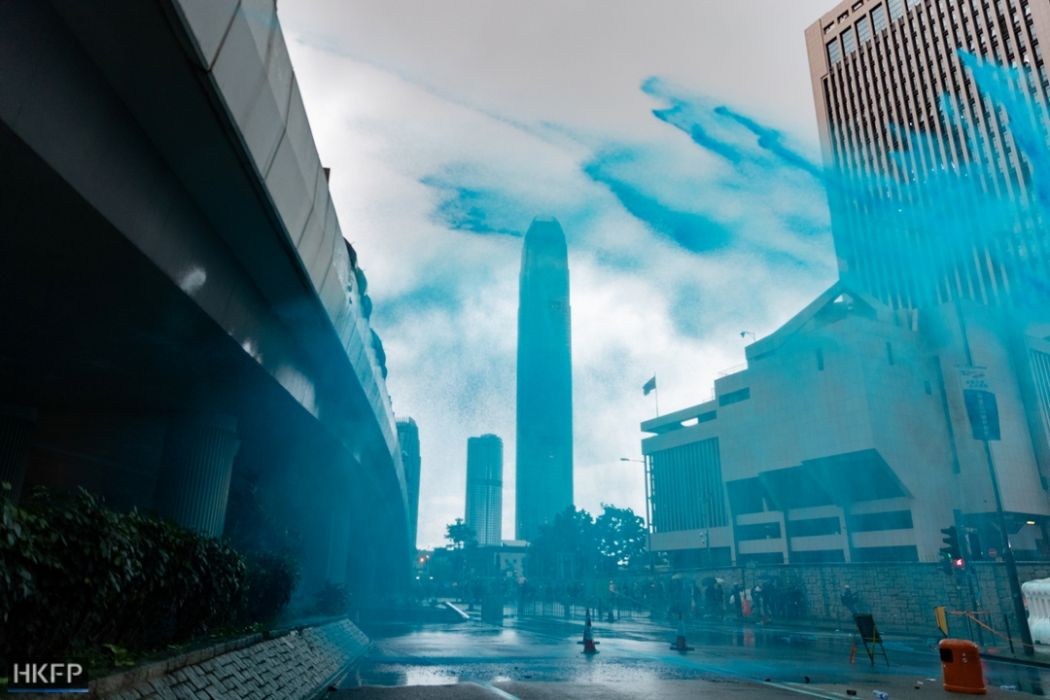It’s back. Having ignored my advice (!) and done anything but try to claw out of the bottom of the well that is the Liaison Office, the best our hotshot trouble-shooter can come up with is to blow the dust off Article 23.
If that wasn’t incendiary enough, he’s thrown in a measure of patriotic education, too. Like many others, I feel a sense of helpless exasperation.
In its handling of coronavirus, the Hong Kong Government, at worst, didn’t screw up too badly – in itself an achievement by its lamentable standards – and, at best, did a reasonable job. If ever there was a moment to build on that success with a political settlement, now is that moment.

It wouldn’t even be difficult. An independent inquiry into the protests, with the power to subpoena; a legislative rework of the rotten boroughs that are the Functional Constituencies, and most Hong Kong people would nod their heads and get back to restoring our wonderful city.
But no. Rather than build on their success with coronavirus, the Hong Kong and Central Governments seem hell-bent on taking the most divisive path possible.
Don’t get me wrong. It’s not that Hong Kong’s national security laws should stay as they are – the fact that a chatgroup administrator can be arrested for the dead crime of sedition is testimony to the need for change – but rather the symbolism. It was Article 23 that first created the polarisation that we see in today’s Hong Kong, and to resurrect it now is to reinforce that polarisation.
And this incessant, unsubstantiated bleating about “foreign powers.” It was the Hong Kong Government, with CCP approval, that branded us “Asia’s International City.” If we were “Asia’s Parochial Backwater,” there would at least be a measure of intellectual coherence about this paranoia.

But if Hong Kong is to be branded as international, it invites foreign powers to take an interest. And they do. They have trillions of dollars invested here: that interest is entirely legitimate.
There is a big difference between interference and influence. China itself seeks to influence foreign powers and swing public opinion. All countries do. At the inter-state level, it’s known as “diplomacy” (which, as Clausewitz famously tells us, becomes known as “war” when it fails); at the soft level, it’s the Voice of America, the BBC World Service, the Confucius Institute and innumerable other similar governmental and quasi-governmental organisations – including the Hong Kong government’s own much-loved and quoted Heritage Foundation.
Foreign influence is not always benign, but at its best it can invigorate, bring new ideas and perspectives. It can bring tolerance and a measure of understanding which, in their turn, can lead to cross-border friendships. It can engender a peaceful world.
Foreign interference – e.g., Russia’s interference in America’s 2016 elections – does cross a line. As does espionage, political assassination and the like. Call it the dark side of statecraft. But to suppose that hundreds of thousands if not millions of Hong Kong people took to the streets because they are spies, or in the pay of spies, is not merely absurd, but laughable.

So, having disposed of the laughable, let’s turn our attention to the protesters who vandalised shops, the MTR, traffic lights and the like: are they foreign-backed? The police have had almost one year to infiltrate these groups; they have yet to wheel out a single mastermind, or to produce a shred of evidence that the violence is indeed foreign-backed.
Perhaps the police are working on some grand conspiracy that they will, in due course, present with a flourish. Until that day, the accusations are vacuous. See my article here on how weak these allegations are.
All of this is to say: you can’t have it both ways. If Hong Kong wishes to remain Asia’s International City, it will remain subject to foreign influence and a target of foreign interference. But there is no credible evidence that the protests were the result of foreign interference.
I give credit to the notion that there were opportunistic attempts to fan the flames – and those would indeed count as interference – but to say without evidence that the root cause was interference is to make a logical leap into fallacy.

It is also to distract from the root cause: Hong Kong’s almost feudal system of governance. This city is ruled by an entrenched elite of plutocrats whose own nation is Mammon, who have loyalty to nothing but their own wealth, and who dazzle naïve fools in both the Hong Kong and PRC hierarchies into believing that there’s something clever about being a rentier.
The great irony is that, if they were tycoons in the PRC, most would be in jail. Yet in Hong Kong they are given free rein at the expense of the rest of the population.
Richard Feynman, one of the 20th century’s greatest theoretical physicists, was once asked in Congressional testimony what a billion-dollar atom-smasher would do for America’s defence. He answered that the quest for knowledge was one thing that made America worth defending.
There is much that makes China worth defending; build on that, and Article 23 and patriotic education will no longer be needed.
